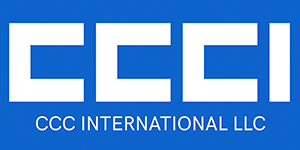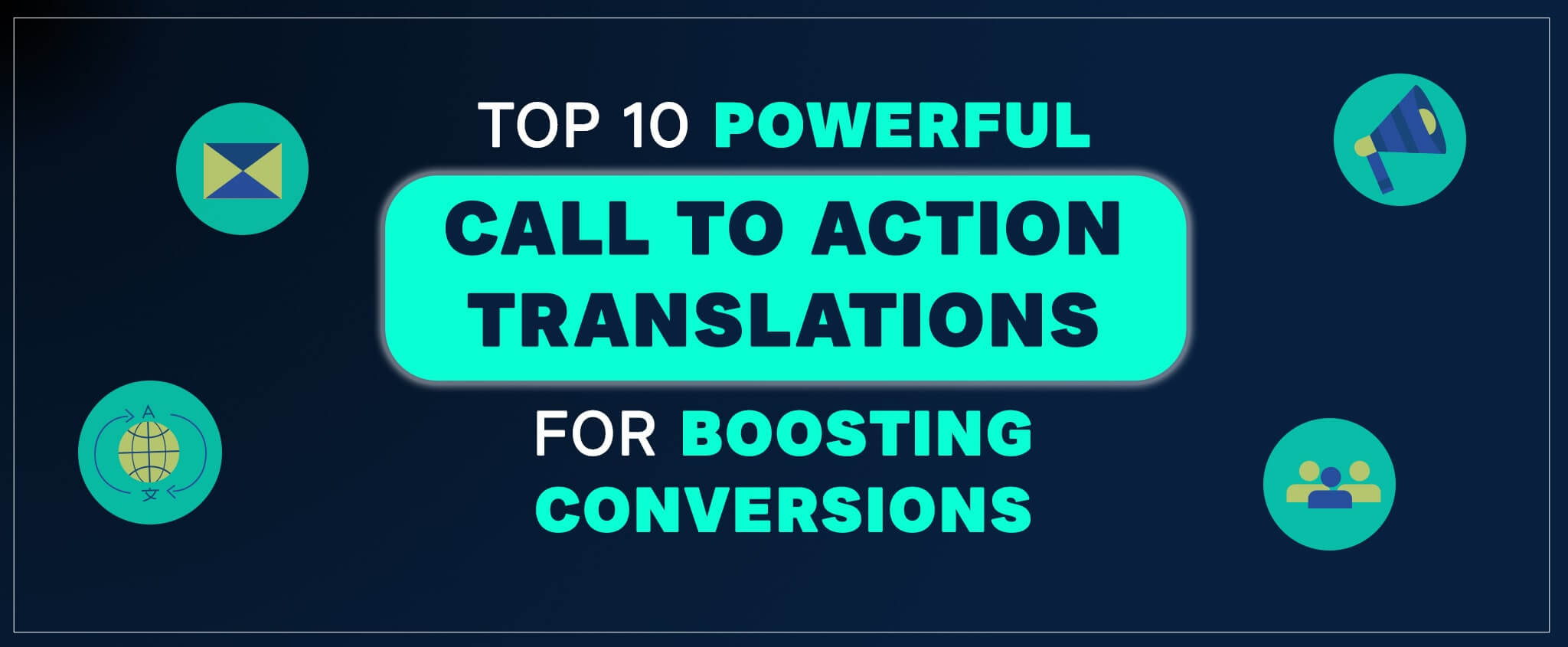Unlocking Global Success: The Power of Website Localization and SEO
There are about 1.13 billion websites globally, with only over 200,000,000 websites actively maintained and visited. The numbers prove how websites have become increasingly important in today’s digital world, especially for businesses. But besides having an attractive, functional, and user-friendly website, website localization and SEO give businesses an edge in the global market. Let CCC International explain why…
Key Takeaways:
- Website localization is making a website suitable for different language markets and cultural environments.
- Website SEO is optimizing websites to rank higher in search engine results pages.
- When you localize your website, you improve your brand reputation, SEO, and website traffic and increase customer engagement revenue.
- Multilingual website translation and localization allow businesses to target consumers in different countries, widen their reach, and gain global recognition.
Table of Content:

What is Website Localization, and Why Do You Need It?
Website localization is the process of making a website suitable for different language markets and cultural environments. It involves translating text, images, and videos into multiple languages while ensuring that the translated content accurately conveys the meaning of the original. When you localize your website, you do the following:
- Ensure your website copies, content, and brand voice remain accurate and authentic even after multilingual translation.
- Communicate an understanding of global nuances through cultural elements like date and date formats, units of measure, and local holidays.
- Guarantee accuracy and proper transactions through transactional elements like payment options and currency.
- Engage with local audiences through trust elements like local addresses, customer support, and phone numbers.
- Help users interact with your website through navigation and discovery in their language.
- Make your users feel you customized your website for them.
Translating websites into other languages is a lot of work; localizing them is even more challenging. It requires understanding the local cultures and incorporating them into your website. But if you are serious about entering new markets, investing in localization is necessary. Why? Here are four good reasons:
1. Improved Brand Reputation
Brand reputation is everything. When you localize your website, potential customers recognize that you understand and respect the culture of their locale. When you welcome them to your website through their language and local cultural elements, they’ll be more likely to trust you. It boosts brand reputation and increases the likelihood of leads becoming customers, starting the domino effect of brand loyalty.
2. Increased Customer Engagement
Having a localized website means customers can easily interact with your brand on its terms. Customers can engage with you in their language and navigate through the website more efficiently, which helps them understand your products and services. It leads to increased customer engagement, improved user experience, and higher conversion rates.
3. Improved SEO and Website Traffic
Having a localized website can also improve search engine rankings. Search engines use the language and location of users to deliver more relevant results. When your website is localized for a region, it can help your website rank higher in search results from that region. As a result, you’ll see increased website traffic and better visibility.
4. Increased Sales and Revenue
Ultimately, website localization helps you increase sales and revenue. Customers who interact easily with your brand are likelier to purchase from you. It’s a win-win situation: customers get a more personalized experience, and you get increased sales!
Note: About 73% of customers prefer to purchase from a website that provides information in their language.
Best Practices for Website Localization
Since localizing a website requires a great deal of resources, here are some tips to help you get started:
- Prepare Your Website For Localization: Your content management system (CMS) should support multiple languages and be flexible enough to accommodate changes.
- Ensure Your Database Schema Supports International Variants: Your database schema must be prepared to store content correctly.
- Consider Language Orientation and Length: Not all languages use the same orientation and length. Design your website to accommodate multiple languages from different regions.
- Consider Name Structures and Order: Different cultures have different conventions for name structures and order. Consider these when localizing your website.
- Use Standardized Formats: Use standardized formats for dates, currencies, and other numerical values to make localization easier.
- Test Your Localized Output: Test your localized website and check for errors, inconsistencies, and inaccuracies.
- Prioritize Intuitiveness: Put your users’ needs first by ensuring that your localized website is easy to navigate and understand.
Pro Tip: It’s best to have different teams focus on various aspects of the localization process. You need language experts to translate your website, web developers to ensure that the website works properly, and marketing teams to identify customer needs in each locale.
What is SEO, and Why Do You Need It?
Search Engine Optimization (SEO) and websites have been inseparable for years. SEO is the process of optimizing websites to rank higher in search engine results pages. It makes your website visible, allowing potential customers to find you easily. The crucial elements of SEO are as follows:
- Keywords: Keywords are words and phrases people use to search for information. Identify the keywords relevant to your industry and incorporate them into your website’s content.
- Content: Content should be relevant, engaging, informative, and error-free. Your content should also be optimized for search engines, meaning it should include keywords, be optimized for mobile devices, and contain internal links.
- Off-Page SEO: Off-page SEO refers to activities outside a website that can affect its search engine ranking. It includes link building, social media marketing, guest blogging, and more.
- Local SEO: Local SEO is even more critical when targeting customers in a specific geographic area. You must optimize your website for local search terms, such as the city, state, or country you’re targeting.
If you are yet to have an SEO strategy, here are four reasons you should start building one:
1.Visibility and Rankings
Website SEO increases your visibility in search engine results pages, thus helping you get more organic traffic to your website. SEO also helps you rank higher for the most relevant keywords, resulting in potential customers finding you before your competitors.
2. Web Traffic
SEO helps you get more targeted traffic for your products or services. The more targeted the traffic, the better the chances of converting it to paying customers!
3. Authority
Through SEO, you build your website’s authority. It’s possible by building links from other websites and improving your website’s content. The more authoritative you become, the higher you rank in search engines.
4. Better Visitor Experience
Lastly, website SEO focuses on creating a better experience for visitors, making them more likely to stay longer and return. By improving the website’s usability and design, you encourage visitors to stay longer and increase their chances of converting into customers.
The Role of SEO in Website Translation
Now, what does SEO have to do with everything we discussed about website localization? Simply put, website translation can drastically improve your business’s SEO if done correctly. Here are three crucial things to remember when localizing your website:
Keyword Search
If a keyword ranks high in one language, it doesn’t mean it also ranks high in another. So even if you have translated your website according to the highest-ranking keywords in your source language, you can still miss out on valuable traffic from other languages if you don’t research them separately. As a result, your target audience still won’t be able to find you, making your website translation efforts useless.
Titles For Categorization
Generally, titles are crucial in SEO as they give search engines an idea of what the webpage is about. Moreover, they are what users see first, so they need to be eye-catching and relevant enough to make them click. Therefore, SEO title translation and localization are also very substantial.
Metadata Optimization and Tags
Many businesses fail to give metadata optimization and tags the attention they deserve. They tell search engine crawlers what your web pages are about and how to organize them in their database. Without them, your localized website still won’t be visible to search engine users.
CCCI – Professional Website Translation and Localization Services
CCCI knows these are a lot to take in. However, if you’re committed to expanding your business to a global level and want to get the most out of localization, considering all these factors can help you achieve your goals. And if you’re unsure where to start, our website translation service is here to provide the professional language support you need!
CCCI offers general and specialized translation services. We have worked with various businesses from different industries, making products and services available in over 30 languages. Our team of native-speaking experienced translators can help you have a website tailored to your target audience and optimized for search engine visibility. With us, your business can reach out to customers regardless of location or language. Contact us today, and let’s get started!






